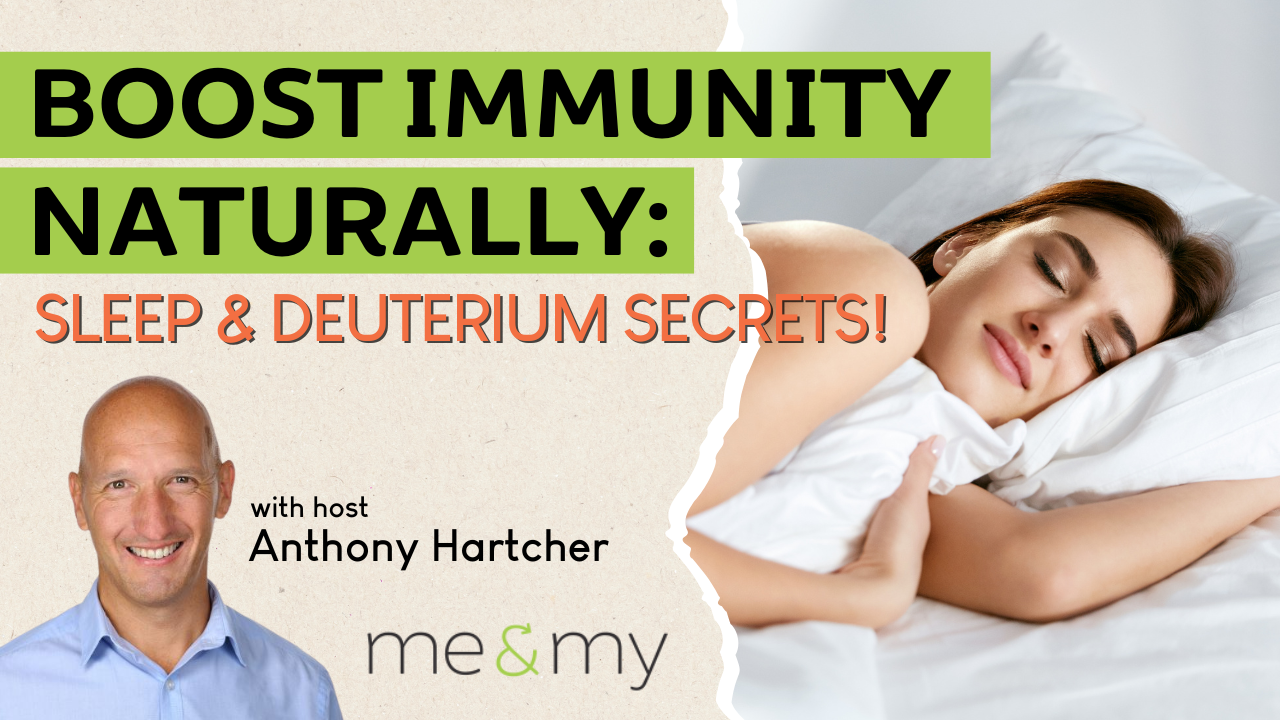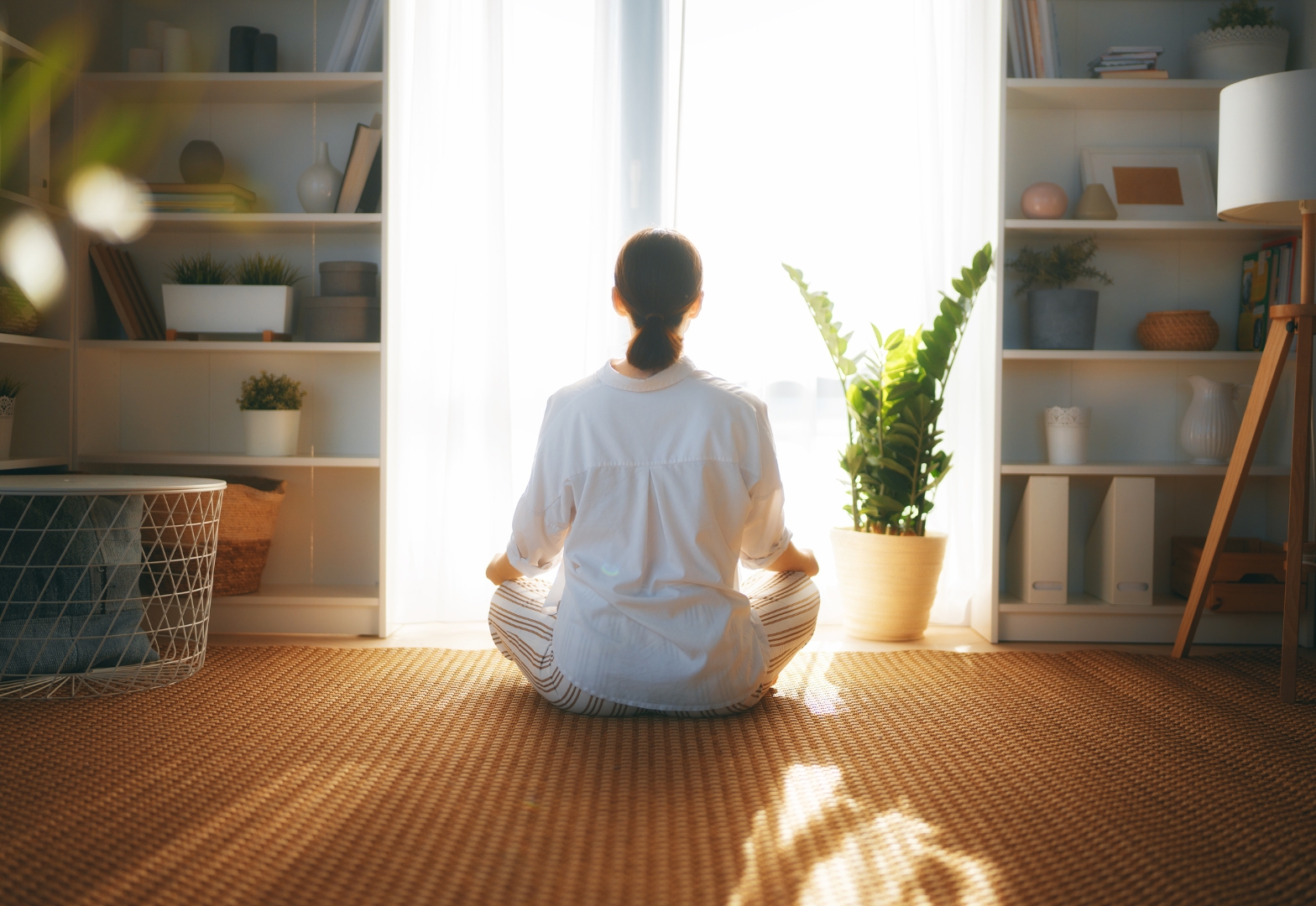Boosting Immunity Through Better Sleep and Deuterium Reduction

As the chill of winter settles in, it’s more important than ever to prioritise your health and wellbeing. The cold weather can challenge your immune system, making you more susceptible to illnesses. Anthony Hartcher, a renowned wellness expert, highlights the critical role of quality sleep, evening reflection, and proper nutrition in bolstering your immune system during the colder months. By integrating these practices into your daily routine, you can significantly enhance your overall wellbeing and remain healthy throughout the winter season.
Watch the full video here:
The Importance of Quality Sleep
Sleep is a cornerstone of good health. It is vital for the immune system to function effectively. Anthony Hartcher underscores the need for consistency in bedtime and wake-up times to support immune function and improve sleep quality. He suggests identifying the time when you naturally feel sleepy and sticking to it, ensuring your body can fully benefit from restorative sleep. During sleep, our bodies perform vital functions such as repairing tissues, producing essential hormones, and bolstering the immune system. Poor sleep can lead to a weakened immune response, making us more susceptible to illnesses.

Tips for Better Sleep:
- Maintain a Consistent Sleep Schedule: Go to bed and wake up at the same time every day, even on weekends. This helps regulate your body’s internal clock.
- Create a Relaxing Bedtime Routine: Engage in calming activities before bed, such as reading, meditation, or a warm bath.
- Optimise Your Sleep Environment: Ensure your bedroom is dark, quiet, and cool. Invest in a comfortable mattress and pillows. Natural light should dominate your evenings to avoid confusing your body’s internal clock. Allowing darkness to take over signals your immune system to kick into gear for repair and rejuvenation. Minimise lighting at night, opting for fire or incandescent bulbs. Candlelight or a low-burning fire is ideal for creating a restful environment.
- Limit Screen Time Before Bed: The blue light emitted by phones and computers can interfere with your sleep cycle. Try to avoid screens at least an hour before bedtime.
- Watch Your Diet: Avoid large meals, caffeine, and alcohol close to bedtime as they can disrupt sleep. It’s beneficial to minimise alcohol consumption and carbohydrate intake. Consuming fewer carbs reduces the growth of viruses and bacteria, while a diet rich in fats and proteins helps maintain health. Hartcher suggests sweating in saunas to keep deuterium levels low and enhance overall wellness.
Evening Reflection for Personal Growth
In our fast-paced world, it’s easy to get caught up in a never-ending stream of activities and information. Anthony Hartcher emphasises the importance of slowing down and reducing inputs in the evening to allow the brain to process the day’s events. By doing so, you can fall asleep with fewer “open files” in your mind, leading to a more restful night’s sleep.
The Concept of “Open Files”
Throughout the day, your brain processes a multitude of experiences, thoughts, and emotions. When you don’t take time to reflect and process these, they can linger in your subconscious, making it harder to fall asleep and achieve deep, restorative rest. Hartcher likens these unresolved thoughts to “open files” that need to be closed before bedtime. By engaging in evening reflection, you give your mind the opportunity to sort through these files, leading to a calmer, more peaceful state as you drift off to sleep.

Benefits of Evening Reflection
- Mental Clarity and Peace: Taking time to reflect on your day helps clear your mind of clutter and unresolved thoughts. This mental clarity can significantly improve your ability to relax and fall asleep.
- Enhanced Personal Growth: Reflecting on your day allows you to identify areas where you succeeded and areas where you can improve. This continuous self assessment fosters personal growth and development.
- Improved Problem-Solving: By analysing what didn’t go well during the day, you can develop strategies to handle similar situations better in the future. This proactive approach enhances your problem-solving skills and resilience.
- Emotional Processing: Evening reflection provides a dedicated time to process your emotions. Acknowledging and understanding your feelings can lead to better emotional health and reduce stress.

How to Practice Evening Reflection
- Set Aside Time: Dedicate a specific time each evening for reflection. This can be as little as 10-15 minutes. Make it a consistent part of your nightly routine.
- Create a Peaceful Environment: Find a quiet, comfortable place where you can reflect without distractions. Dimming the lights and minimising noise can help create a calming atmosphere.
- Journaling: Writing down your thoughts can be an effective way to reflect. You can journal about what went well during the day, what challenges you faced, and what you learned. This practice helps organise your thoughts and provides a tangible record of your progress.
- Mindfulness Meditation: Engaging in mindfulness or meditation can help you focus on the present moment and process your day. Techniques such as deep breathing and guided meditation can be particularly helpful.
- Gratitude Practice: Reflecting on what you’re grateful for can shift your focus from negative to positive aspects of your day. This practice can improve your overall outlook and emotional wellbeing.
- Planning for Tomorrow: Use this time to plan for the next day. Setting priorities and organising tasks can reduce anxiety and help you feel more prepared and in control.
Understanding Deuterium Reduction
Deuterium, a naturally occurring form of hydrogen, can have adverse effects on cellular function and energy production when present in high amounts. Anthony Hartcher emphasises the importance of minimising deuterium levels through deliberate cold exposure, exercise, and a balanced diet. By adopting these practices, you can enhance your metabolism, boost your immune system, and improve overall health.

The Role of Cold Exposure
- Activating Brown Fat: Cold exposure stimulates the activation of brown fat, a special type of fat tissue that generates heat and burns calories. Unlike white fat, which stores energy, brown fat helps maintain body temperature and boosts metabolism. This process not only provides thermal insulation but also helps in weight management.
- Boosting Metabolism: When your body is exposed to cold temperatures, it works harder to maintain its core temperature. This increased energy expenditure leads to a higher metabolic rate, which can aid in weight loss and overall metabolic health.
- Improving Hormonal Balance: Cold exposure can positively influence hormonal balance by increasing the production of norepinephrine, a hormone that enhances focus, mood, and cognitive function. It also supports the immune system by promoting the release of anti-inflammatory cytokines.
- Deliberate Cold Exposure Techniques: Practical methods to incorporate cold exposure into your routine include taking cold showers, ice baths, and spending time in cold environments. Start gradually and increase the duration and intensity as your body adapts.

Dietary Strategies to Reduce Deuterium
- Nutrient-Dense Foods: Incorporating nutrient-dense foods into your diet is crucial for reducing deuterium levels. Foods like meats, fats, bone broths, and stews are rich in nutrients and align with evolutionary dietary patterns. These foods provide essential vitamins, minerals, and amino acids that support overall health.
- Minimising Carbohydrates: Reducing carbohydrate intake, especially during winter, helps lower deuterium levels. Carbohydrates are higher in deuterium compared to fats and proteins. By focusing on a diet rich in fats and proteins, you can maintain energy levels and support metabolic health.
- Bone Broths and Stews: These traditional foods are not only comforting during winter but also packed with nutrients that promote health. Bone broths are rich in collagen, gelatin, and amino acids, which support gut health, joint function, and skin integrity.
- Evolutionary Dietary Patterns: Aligning your diet with evolutionary patterns means consuming seasonal and locally available foods. During winter, this translates to eating fewer carbohydrates and more warming, nourishing foods like meats, fats, and broths. This approach supports metabolic health and reduces the risk of illness.
Combining Cold Exposure and Diet
- Exercise and Cold Exposure: Engaging in regular physical activity, especially in cold environments, can amplify the benefits of cold exposure. Exercise increases energy expenditure and enhances the body’s ability to adapt to cold temperatures, further boosting metabolism and reducing deuterium levels.
- Hydration and Deuterium Depletion: Staying hydrated with deuterium-depleted water (DDW) can also support your efforts to reduce deuterium levels. DDW has a lower concentration of deuterium and can aid in optimising cellular function and energy production.
- Balanced Diet and Cold Exposure Synergy: Combining a nutrient-dense, low carbohydrate diet with regular cold exposure creates a powerful synergy that enhances metabolic health, supports immune function, and promotes overall wellbeing.
Conclusion
As winter approaches, prioritising your health becomes even more crucial. By enhancing the quality of your sleep and reducing deuterium levels in your body, you can significantly boost your immune system and overall wellness. Implement these strategies to stay healthy and resilient throughout the winter season.
Stay well and embrace the power of better sleep and deuterium reduction to unlock your winter wellness potential!
Embrace a Holistic Approach with me&my wellness
At me&my wellness, we advocate for a holistic approach to health that harmonises mind, body, and spirit. Our holistic health coaching aims to address challenges, promoting healing on emotional and physical levels. We provide personalised strategies such as stress management, emotional healing, and guidance in balanced nutrition and lifestyle adjustments.
By focusing on a comprehensive approach, we empower you to reclaim your health and well-being. Ready to transform your wellness journey? Book a 15-minute FREE consultation with us today and take the first step towards a healthier, more balanced life

